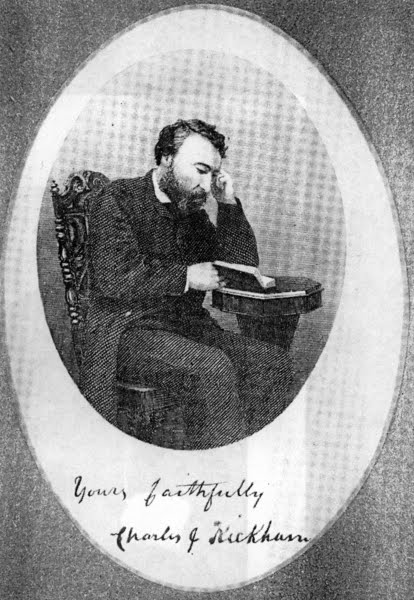Charles Kickham

9 May: born at Mullinahone, County Tipperary. His father John Kickham was proprietor of the principal drapery in the locality, and was a great Republican. His mother, Anne O'Mahony, was related to the Fenian leader John O'Mahony. His childhood was full of the Repeal agitation.
Powder flask accident, which leaves CK almost completely deaf and almost completely blind.
Begins reading The Nation and becomes enamored of the Young Irelanders. CK's father would read the paper aloud every week for the family. This reading would include the speeches in Reconciliation Hall (home of the Repeal Association) and reports on Repeal meetings in the provinces. However, like all the young people of the time, and a great many of the old ones, CK's sympathies went with the Young Irelanders on their secession from the Repeal Association.
Joins the failed 1848 Rising. On hearing of the progress of O'Brien through the country, CK had set to work manufacturing pikes, and was in the forge when news reached him that the leaders were looking for him. It was here that CK would meet James Stephens for the first time. At O'Brien's request, he rang the chapel bell to summon the people and before midnight a Brigade had answered the summons. CK will later write a detailed account about this period.
CK contributes "The Harvest Moon" sung to the air of "The Young May Moon," to The Nation. Other verses follow, but the finest of his poems appear in other journals. "Rory of the Hill," "The Irish Peasant Girl," and "Home Longings" better known as "Slievenamon" are published in The Celt. "The First Felon" (John Mitchel) appeared in The Irishman. "My Name is Patrick Sheehan," the story of an old soldier, was published in The Kilkenny Journal, and became very popular as an anti-recruiting song.
Is one of the founding members of the Irish Republican Brotherhood.
Begins work on The Irish People, a newspaper for the IRB.
Becomes part of the Committee of Organization or Executive of the IRB.
Sentenced to 14 years of penal servitude for treason against the Crown. His speech from the dock includes the following:
" ...Concessions to Ireland have always been the result of Fenianism in some shape or other. The English Government, however, while making concessions, always expected to get something in return. Not only have they stipulated upon getting prompt payment indeed, but they also contrive to get a large installment in advance...English rule in Ireland is on its trial. The Government admit the existence of a widespread conspiracy, both in Ireland and America. This only shows that the treatment of Ireland by England has been judged and condemned. I regard alien government of this kind as a thing to be overthrown by the methods everywhere recognized as the most efficacious for such a holy purpose. This is my vindication, my justification for the attitude I have taken..."
Released from jail under partial amnesty because of ill-health. Upon his release CK is made Chairman of the Supreme Council of the IRB and the unchallenged leader of the reorganized movement.
Dies. Is buried in Mullinahone.